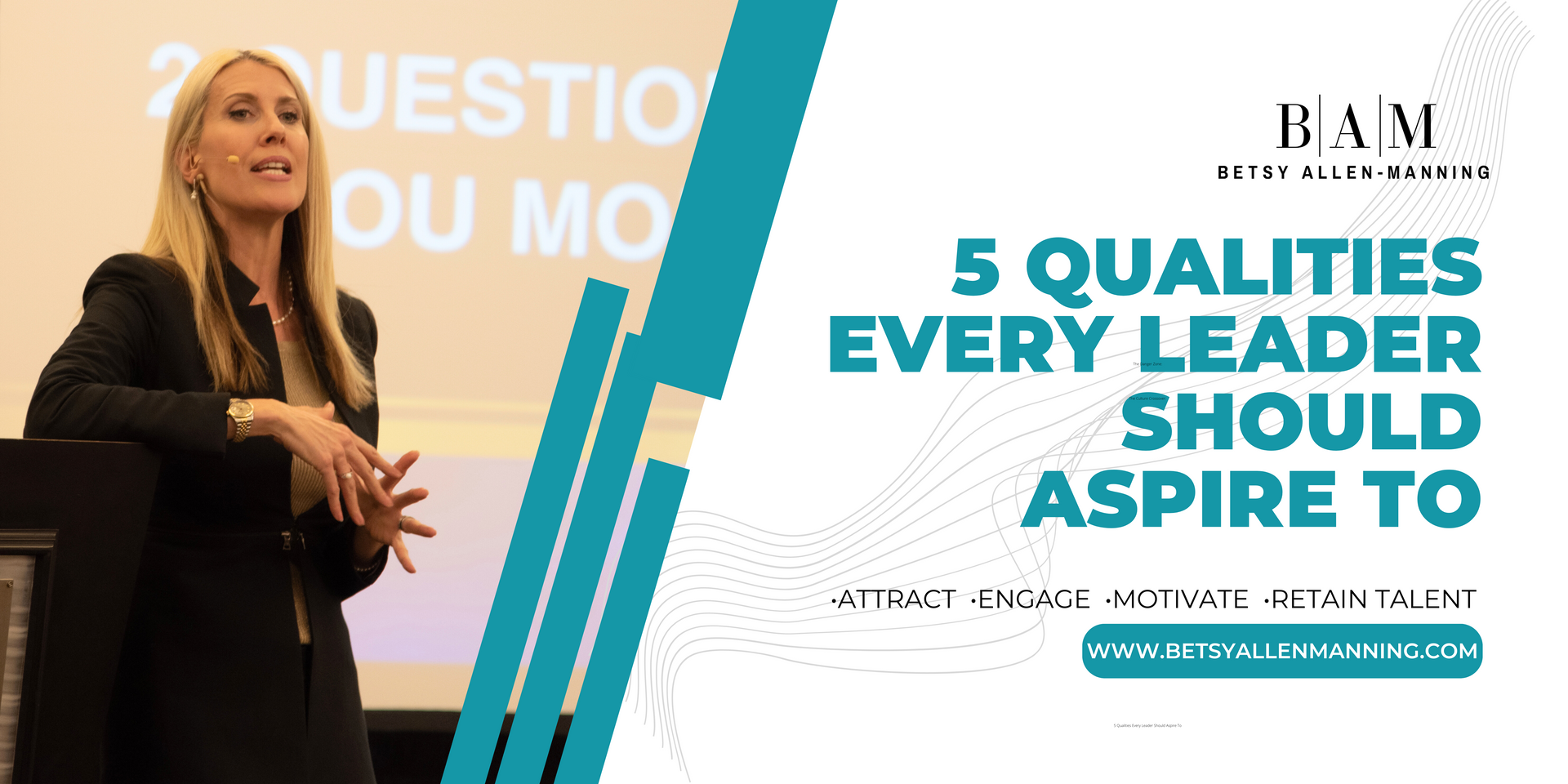5 Qualities Every Leader Should Aspire To

What separates great leaders from mediocre ones? What are the ingredients that make great leadership? Is there a secret recipe for becoming a top-notch leader? These are some of the questions that continue to boggle the minds of executives and managers worldwide. The truth is, leadership is a complex and multi-faceted skill that takes time, effort, and dedication to master. It requires a combination of innate qualities, like charisma and empathy.. In this article, we’ll take a closer look at the traits of great leaders and provide insights on how you can also develop these qualities.
1. Emotional Intelligence (EQ):
One of the most critical attributes of great leaders is their ability to connect and empathize with their team. Emotional intelligence is the ability to recognize and understand emotions in oneself and others and manage relationships effectively. Great leaders use EQ to enhance their communication, build stronger relationships, and create a positive work culture that fosters growth and success. You can develop your EQ by actively listening, being open to feedback, practicing self-reflection, and seeking out opportunities to understand other people's perspectives.
2. Strategic Thinking:
Great leaders have a clear vision of where their company should be headed and create strategies to achieve that vision. They analyze market trends, competitors, and industry developments to make informed decisions that drive their organization forward. To develop your strategic thinking capabilities, practice scenario planning, study industry trends, and hone your analytical skills. You can also seek out mentorship from seasoned executives who can share their experiences and insights.
3. Effective Communication:
One of the essential qualities a leader can have is the ability to communicate effectively. Leaders must be able to articulate their vision, engage and inspire their team, and build the trust needed to make change happen. Effective communication requires both verbal and non-verbal skills, including public speaking, active listening, body language, and empathy. To improve your communication skills, take a communication course (we suggest a certified DISC program), invest time in team building activities, and seek out opportunities to network and collaborate with others.
4. Managing Change:
Great leaders acknowledge that change is constant and necessary for growth and development. However, change can be unsettling and sometimes disruptive, making it crucial to lead through change effectively. Leaders who excel at leading through change are aware of the potential challenges their team may face. To become adept at managing change, adopt a growth mindset, focus on communication and transparency, and invest in training and development programs that equip your team with the skills they need to adapt to change.
5. Care About Culture:
Great leaders create a culture of excellence and foster an environment that encourages innovation, growth, and success. Leaders who prioritize and promote a positive work culture reap numerous benefits, including higher employee engagement, greater productivity, and a lower employee turnover rate. You can build a winning culture by investing in employee development programs, promoting work-life balance, fostering open communication, and recognizing and rewarding top performers.
Conclusion:
Setting high standards for leadership requires a combination of several critical elements we have discussed. These qualities will enable leaders to inspire, motivate, and guide their teams toward achieving their organization's goals. With these traits in mind, any aspiring leader can work towards becoming a top leader in their organization.
About Betsy: Featured on
FOX,
CBS,
NBC, and
ABC, Betsy Allen-Manning is a high-energy leadership keynote speaker, high-performance expert, and workplace culture strategist who helps organizations develop world-class leaders, build high-performing teams, and create workplaces where people stay, grow, and thrive. She’s the creator of the
DNA of Excellence™ keynote series: data-backed and highly interactive presentations that strengthen leadership behavior, elevate performance, and transform workplace culture. Betsy is also the founder of
Destination Workplace™, an award-winning leadership training company in Dallas, known for advancing leadership excellence and transforming workplace culture for some of the world’s most elite brands.











